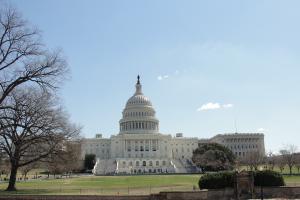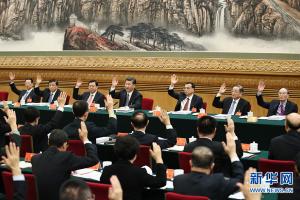Pulse
EconVue Spotlight | A Big Week in Washington
There were three big stories out of Washington this week. President Trump’s trip to Asia has nearly overshadowed news of Congress’s proposed tax changes, and for the first time since G. William Miller, the Federal Reserve will be led by a non-economist.
10-Year Retrospective: Lessons 7, 8, 9 | Three more Lessons! That's the Lot
7. Neglect of international causes
This is the most fatal flaw, as it is the one least understood by economists, governments or bankers.
My interpretation of the crisis emphasises its international dimensions – not only in the rapid spread of the crisis but also in its root causes (see Lesson 3).
Yet this perspective is still denied, derided or ignored.
10-Year Retrospective: Lesson 6 | The State has Rewarded Bad Behavior and Bad Banks
How has the state punished the financial industry for its crimes, corruption and anti-social behaviour?
By showering it with subsidies, privileges, perks and by offering it protection from an angry public. And by reducing its profitability and capacity to change by piling new regulatory layers and requirements.
And this remains true not just of the UK and US. It is true of European countries as well.
There is no incentive to improve their behaviour.
10-Year Retrospective: Lesson 5 | Banks have not Regained Public Trust
This is another unavoidable lesson. Banking has not been reformed by actions taken by the state, central banks or regulators since the crisis. Indeed they have set back the prospects for improvement.
There were two main strands in the policy response to the crisis. One was monetary policy – the experiment in QE, discussed in Lessons 1-3. The other was regulatory.
Banking industry leaders have resisted all efforts to reform. That shows that in the current state of society, banking can be regulated – raising costs to society – but not restructured.
Crypto Currents
The original plan for this issue was to cover the main trends from last week's Money20/20 conference and get a sense of how banking, payments, and FinTech have evolved over the last year and what the year ahead looks like.
Changing Corporate Governance
This is an interview conducted by Hitoshi Chiba from the Public Relations Office of the Government of Japan.
Crony Capitalism Has Consequences: Opioid Distribution, Destruction and Death
Talk about bombshells. On October 15th, the Washington Post and 60 Minutes released a detailed and damning investigative report titled “The Drug Industry’s Triumph Over the DEA (Drug Enforcement Agency).” The report chronicles how Big Pharma and its Congressional allies orchestrated passage of legislation that has severely weakened the DEA’s ability to curtail illegal distribution of opioid drugs.
EconVue Spotlight | US Irrational Exuberance vs China's Minsky Moment
The big story this past week has been the pomp and circumstance of China’s 19th Party Congress and its centerpiece, President Xi Jinping’s lengthy speech. In spite of many columns of analysis, there have been no public surprises. You’ll find my favorite article below, “Why Do We Keep Writing About Chinese Politics As If We Know More Than We Do?”


 by
by 
 by
by 
 by
by 


 by
by 
 by
by 


 by
by 